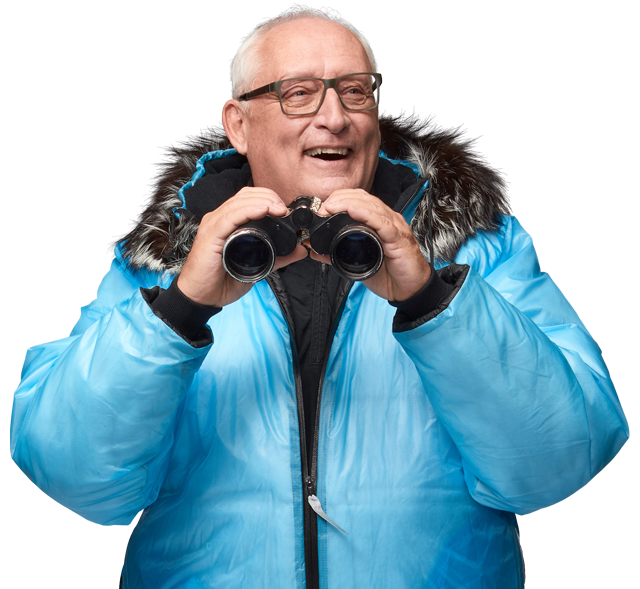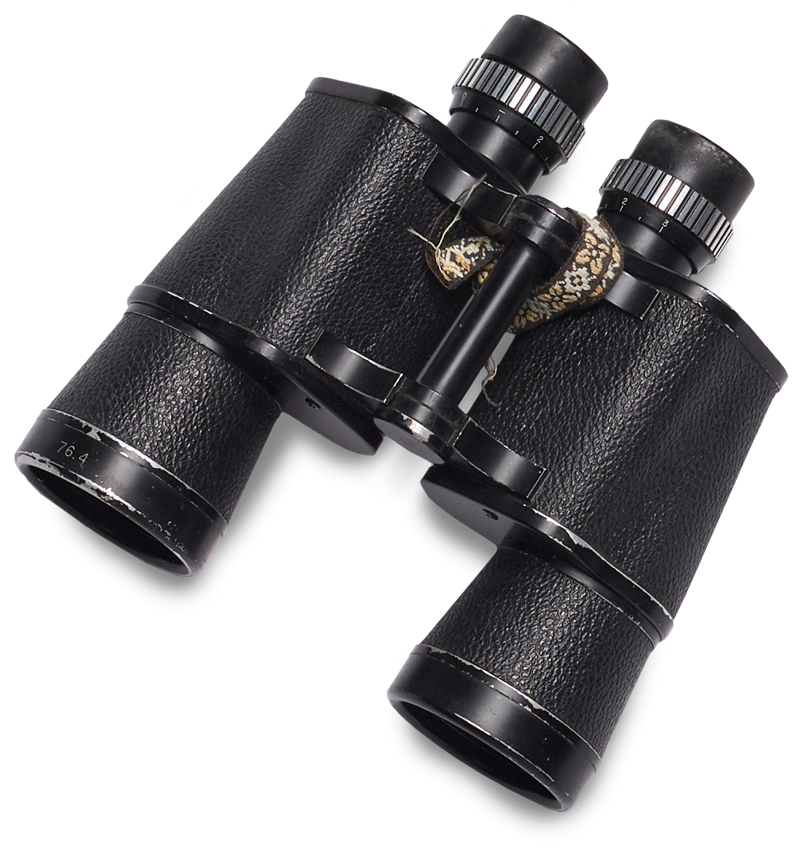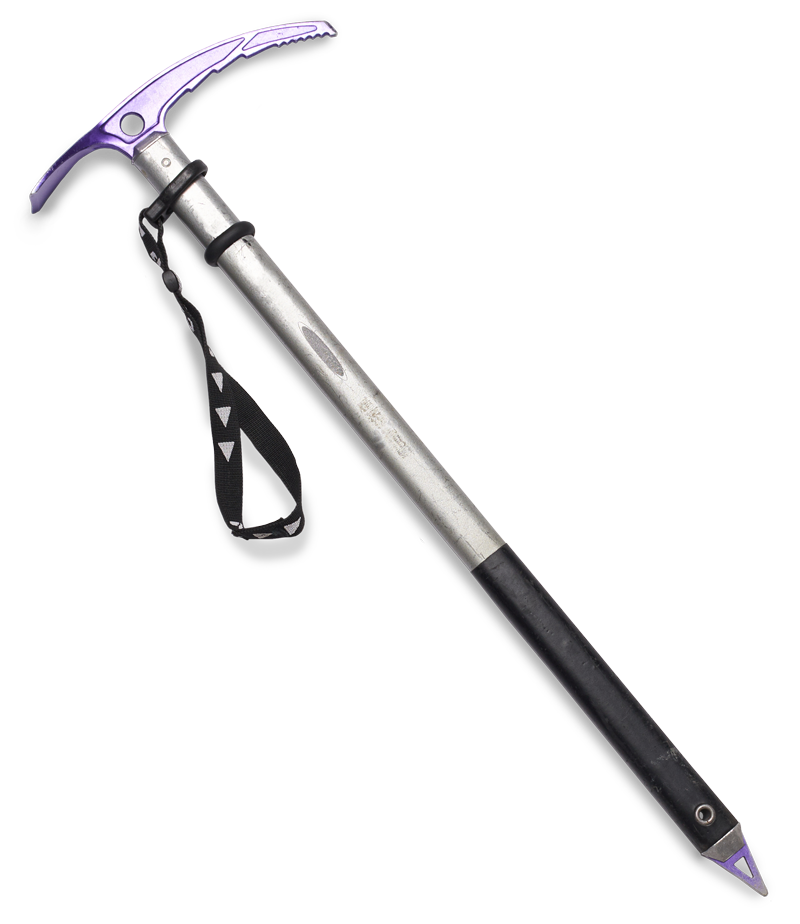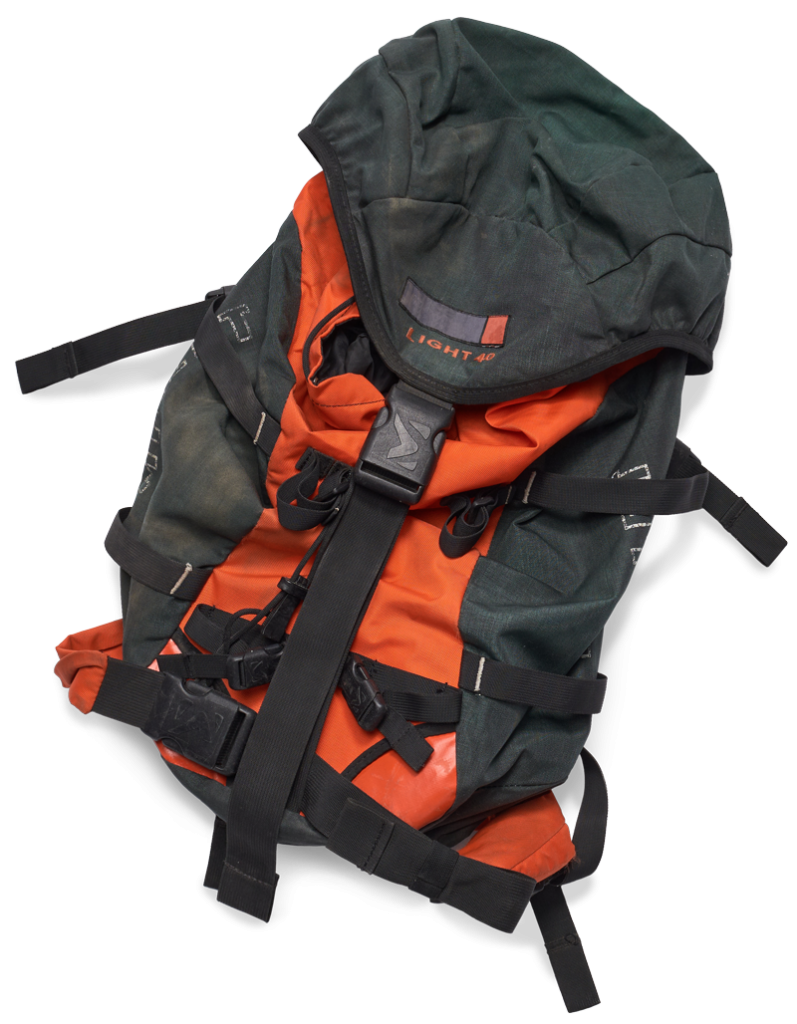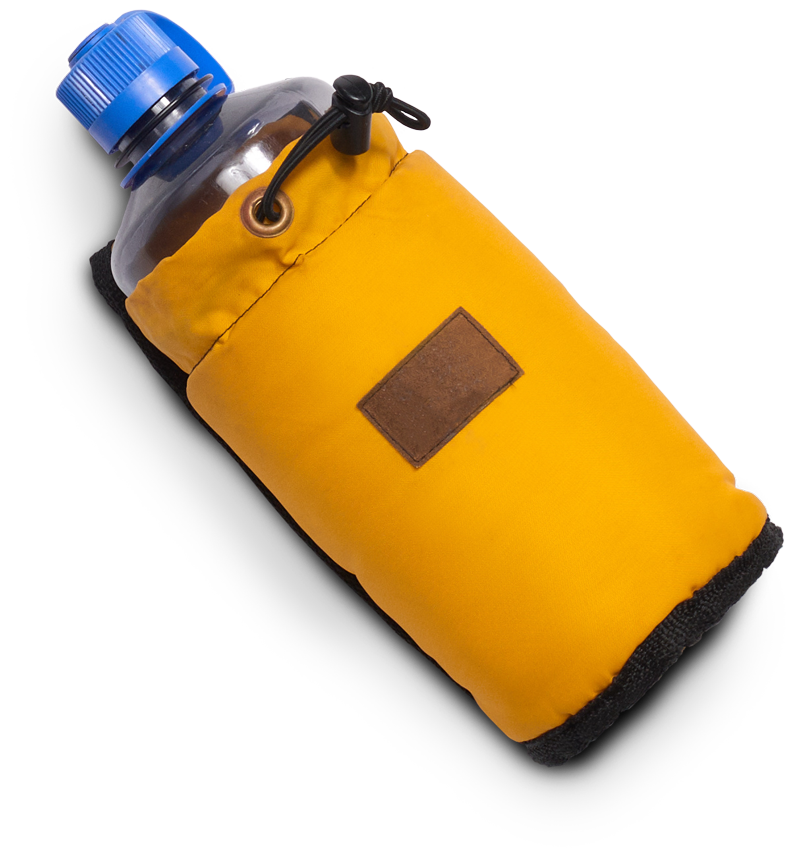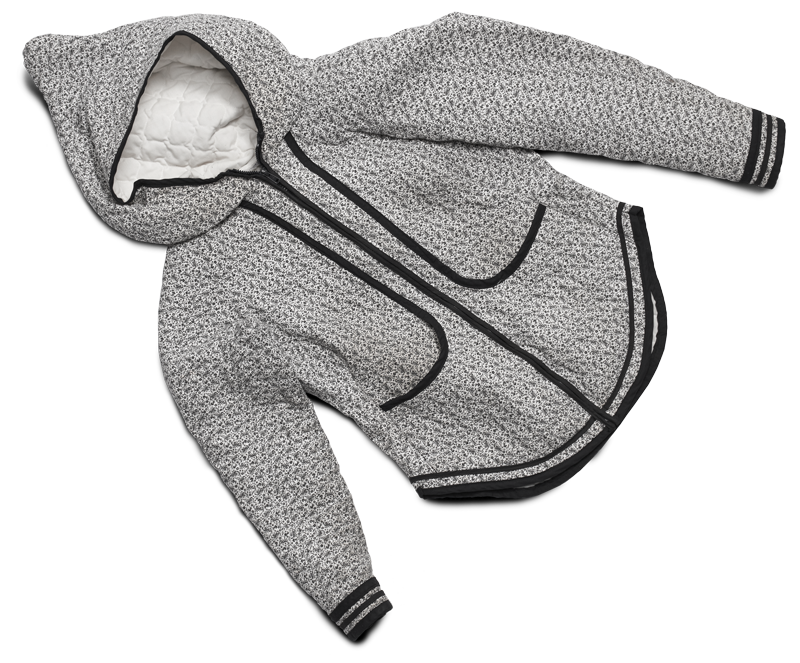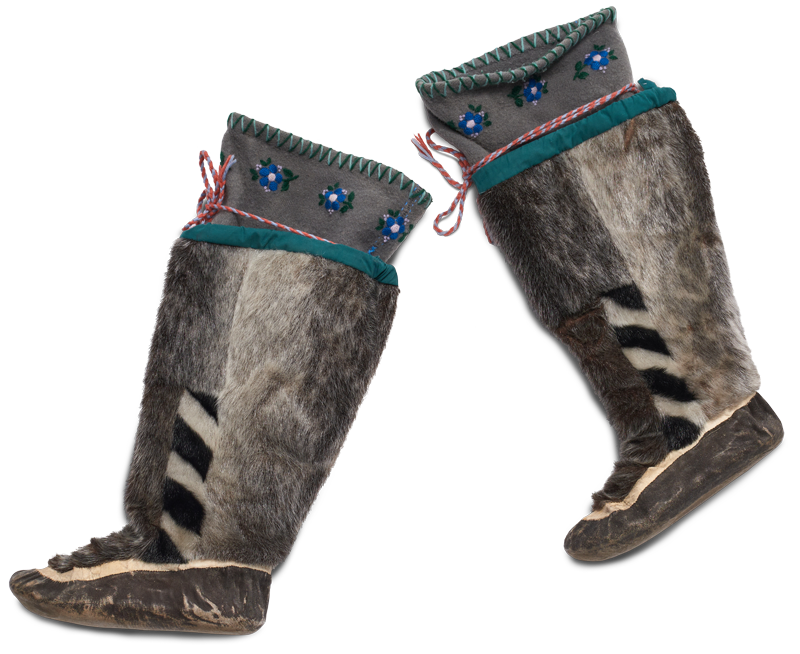Anu Boucher and Bernard Voyer
A dynamic duo!
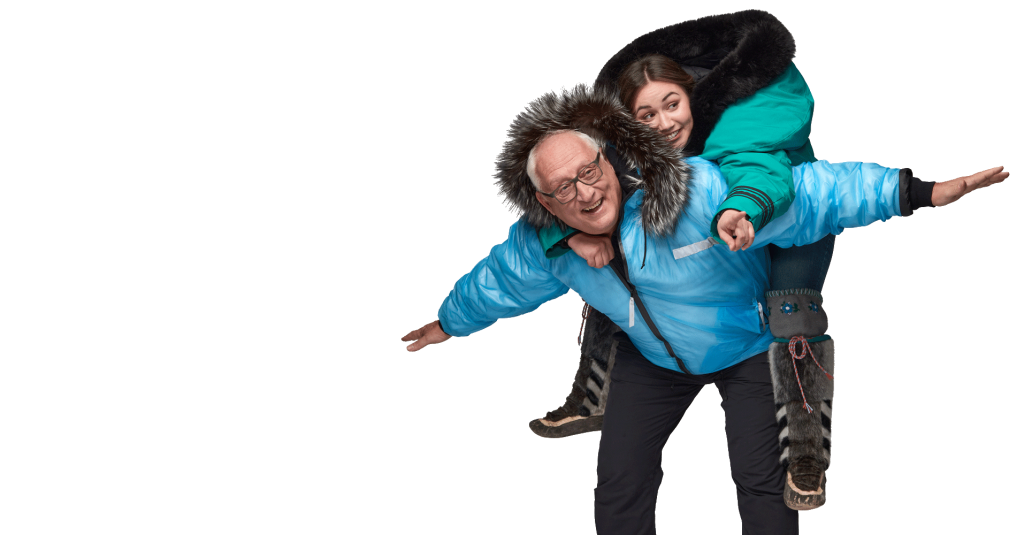
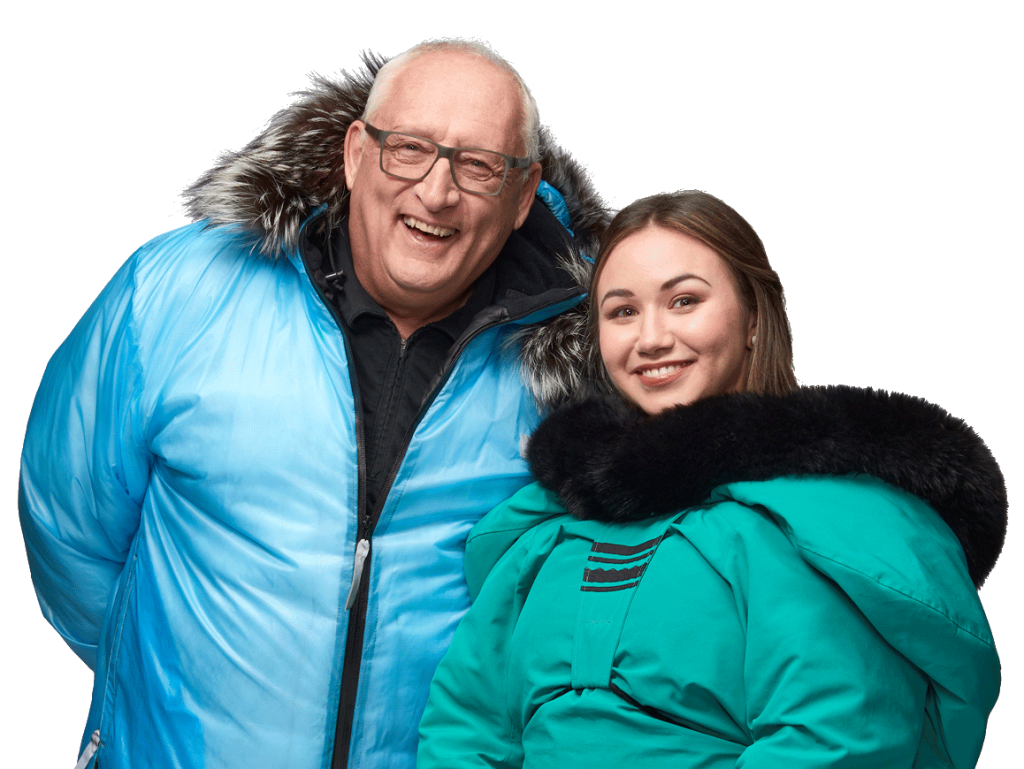
For a discussion of environment and change, it would be hard to find better spokespersons than a Canadian explorer and a young Inuk! The RVF team was delighted with their desire to teach us more about the beauty and fragility of our world, whether in French, in English or in Inuktitut. See for yourself! Happy reading!
bernard voyer
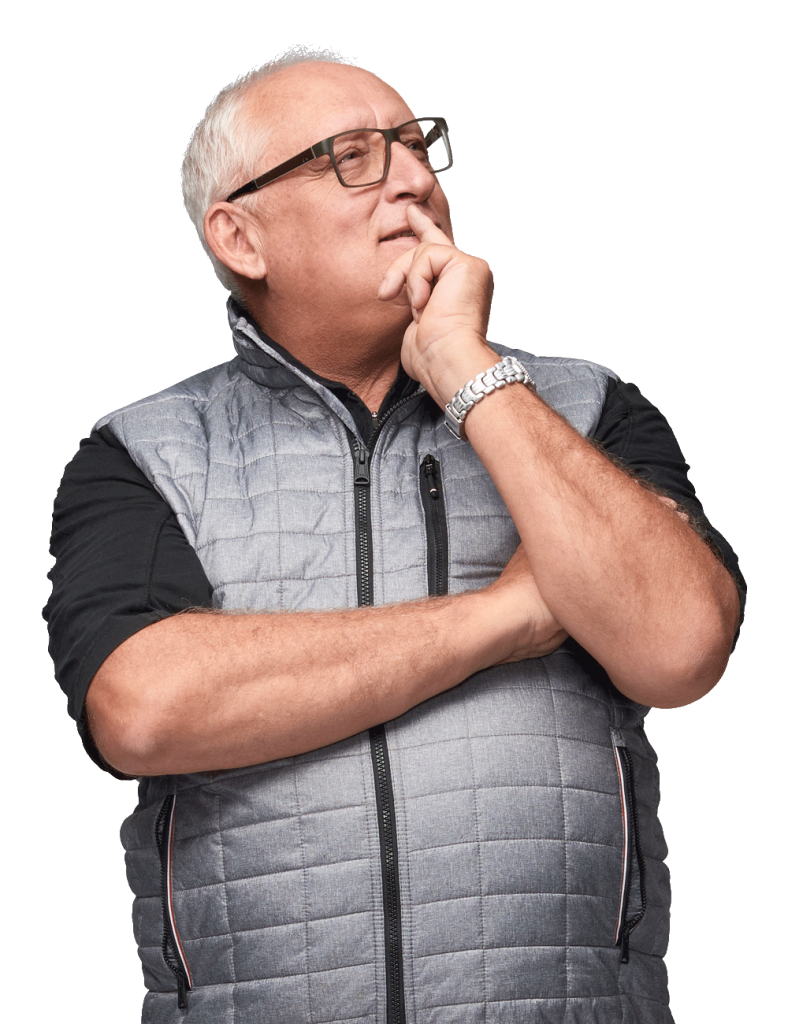
My name is Bernard Voyer. I’m an explorer, mountaineer and motivational speaker. From the days of my childhood on the shores of the Saint Laurence, in Quebec, I’ve been gazing out at the horizon. As my curiosity grew, my taste for exploration became stronger. I therefore dedicated my life to adventure, because I wanted to see farther, to find my way. From my first expeditions, I discovered that winter and I got along beautifully. I wanted to learn more. I have over 30 years of experience in expeditions and adventure under my belt, including reaching the North Pole in 1994; the South Pole, with no outside assistance, in 1996; and the summit of Everest in 1997 and 1999! Today, I share my passion in various ways. I go to schools and talk to students about the path I’ve chosen, and I listen to them talk about their own. I also give talks at various corporate events to link the world of adventure to the world of business. I hope I inspire you to load up your backpack, too, and explore this environment, in French and in all the languages and cultures that distinguish us.
Questions for Bernard
You’re a well-known explorer who has had all kinds of adventures. Which of your experiences as an explorer stands out the most for you, and why?
Bernard: The most difficult, the most challenging was reaching the South Pole on skis. However, the most symbolic were definitely the conquests of the three poles: the geographic North and South poles and the high-altitude pole, the summit of Everest.
You often say that planning is extremely important before an expedition. Tell us about a time when insufficient preparation created problems for an expedition.
Bernard: During an ascent of the highest mountain in Canada, Yukon’s Mount Logan, we had to cross a snow bridge over an enormous crevasse. The team was roped together, with me in the lead; and just as I was pulling the sled loaded with equipment towards me, it slipped into the crevasse and hung there, vertically suspended. We were sure that everything was firmly secured to the sled … but no, all the equipment slid off the sled and was swallowed up in the depths of the glacier. With the little equipment remaining to us, we had to head back and abandon the expedition.
“ My hands will never be large enough to stop the wind. I have enormous respect for the environment; it’s nature that’s in charge. I’m no more than a speck of dust in the universe. ”
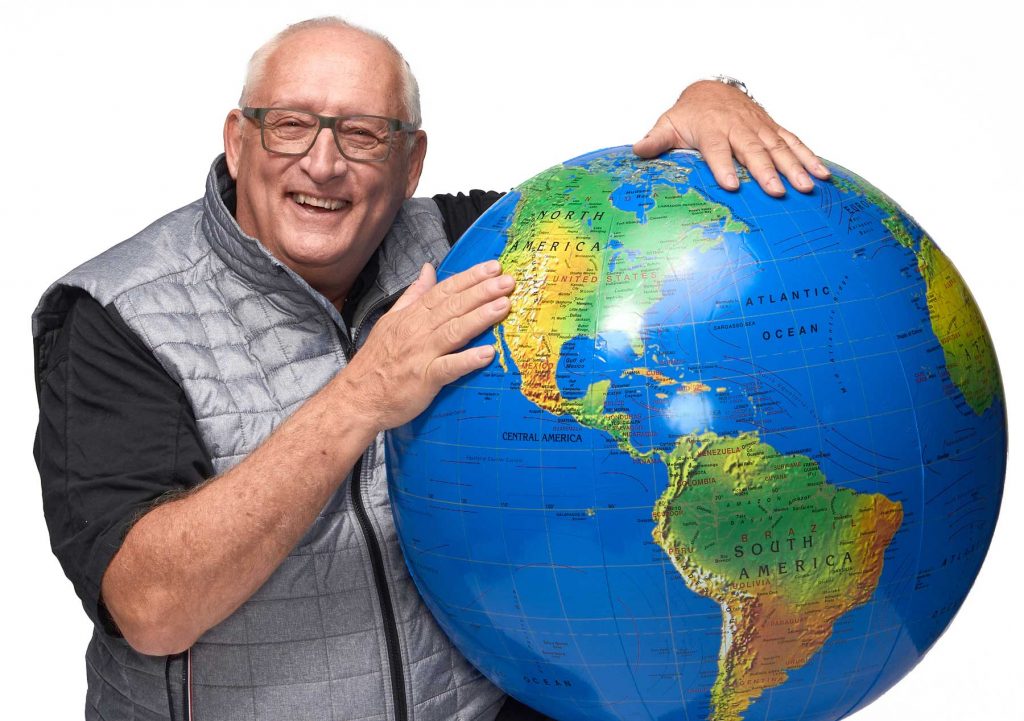
You’ve probably had to eat all kinds of different and unique foods during your travels. What was the most unusual dish you ever tried, and where were you?
Bernard: I have to admit that I’m pretty choosy, and I try to avoid uncomfortable situations. But in Ecuador, I had to force myself to try guinea pig … In fact, for all I knew, it could have been a large squirrel or some other rodent …
It’s obvious you thrive on adventure in the full sense of the word. What can an explorer, mountaineer and speaker like you find to do in his spare time?
Bernard: Like most people, I like to get out and enjoy nature; listen to beautiful music, especially classical; read; but most of all, spend time with close friends and, of course, share the joys of everyday life with the woman I love, Nathalie.
You’ve seen the Far North changing and ice sheets shrinking in recent years; what is your wish for the future?
Bernard: That public awareness will increase to the point that all the actions undertaken will be guided by good judgment. I believe that together we can succeed. We have a sense of urgency, and we know what is needed … What are we waiting for?
ANU BOUCHER
My name is Annette Anulik Boucher, but I prefer to be called Anu, which is a short form of my Inuktitut name. I was born and raised in Rankin Inlet (Kangiqliniq), in Nunavut. It’s a small community in the Kivalliq Region, located on the western shore of Hudson Bay. My mother, Leonie, is an Inuk from Rankin Inlet. My father, Yves, is a Quebecer from Rimouski. My passion for nature spurred me to study in the Environmental Technology Program at Nunavut Arctic College, where I learned about wildlife and marine biology, as well as wildlife and fisheries management, and had the opportunity to participate in field camps. This passion likely comes from my heritage. Inuit have survived in one of the harshest climates by means of their hunting skills and their understanding of their environment. As a spokesperson for the RVF 2020, I hope to share our values, traditions and customs with you, while at the same time drawing closer to the Francophone culture.
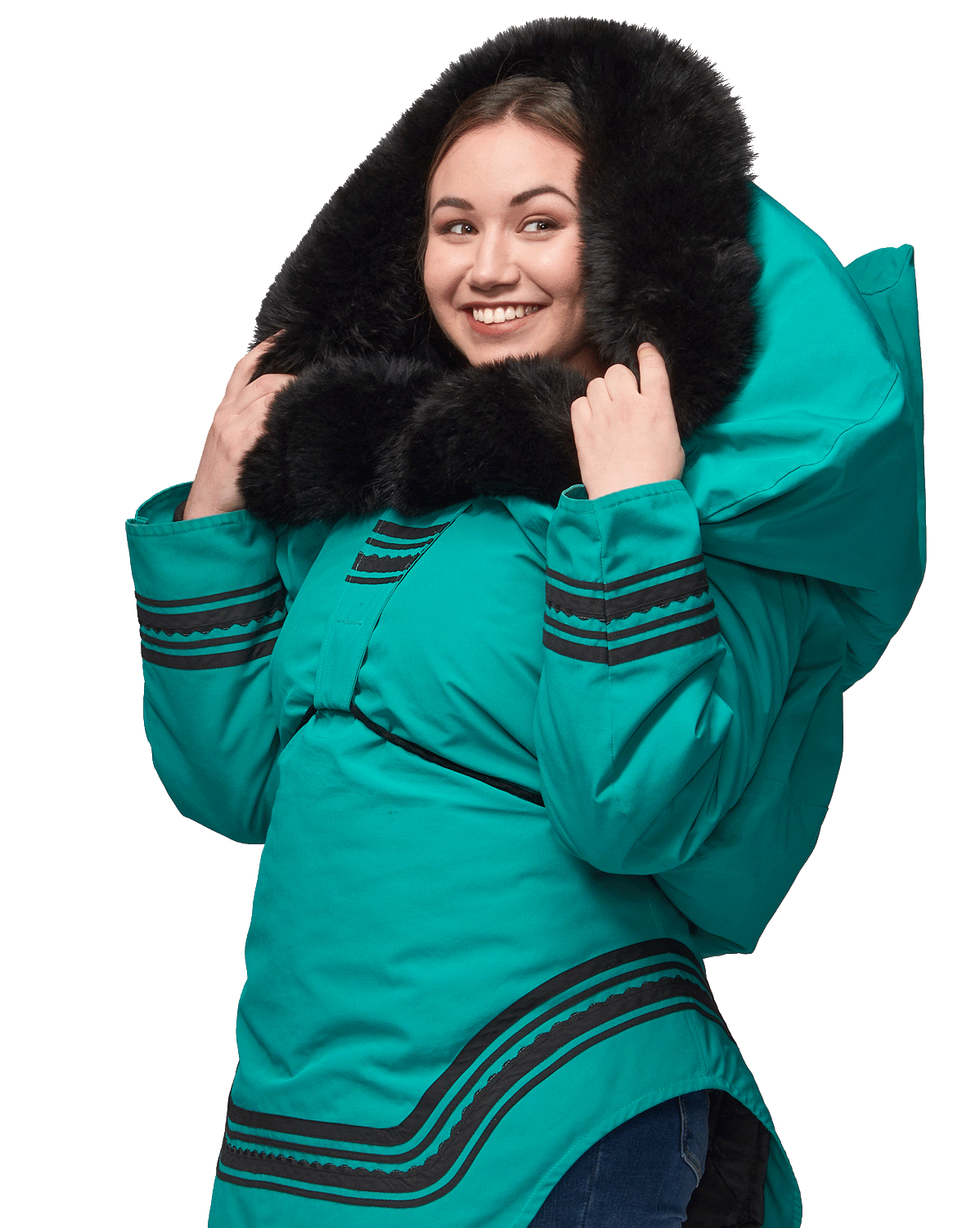
Questions for Anu
Your father is from Quebec, and your mother is Inuit. Tell us how the different cultures and traditional values were transmitted in your youth?
ANU: While I was growing up in Nunavut, my Inuit culture was all around me. We often gathered as a family to eat traditional food. My favourite is caribou meat, which we eat either cooked or frozen raw. I had some outdoor clothing made for me by family. I was able to learn sewing in elementary school, as well as traditional drum dancing, Inuit mythology, and Inuit games. It was more work for my dad to share my French culture with me and my sister Heather. I think the best way for him to do it was through food. We loved waking up on the weekends to make crêpes. Sometimes we’d find ways to mix the best of both worlds and incorporate caribou meat into our spaghetti sauce or poutine. I did speak French for a short time in my childhood, but the only person I was able to speak with was my dad, which was not sustainable, and I stopped speaking French when I realized he was the only one who understood me. This happened before I reached elementary school.
You say you like to educate citizens about Inuit. What teaching from your culture do you prefer to share?
ANU: I think Inuit are very welcoming, and despite coming from the coldest place, we have the warmest hearts. We are very generous people, who take care of each other. When we catch our first animal, we share it all with elders or family in our communities.
“My cultural identity as an Inuk relies on the cold, the snow, the ice. People often use polar bears as the symbol for climate change, and forget about Inuit. We are a small population, and like the polar bear, our culture is also under threat because of climate change”
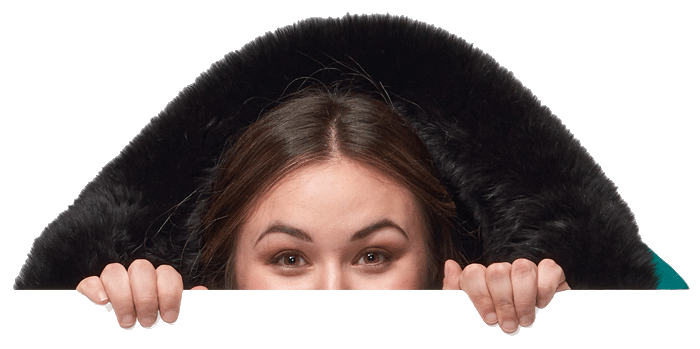
In Nunavut, hunting is more than a necessity; it is an ancestral way of life. Explain why, and what is your favorite typical food?
ANU: My favourite traditional food is probably caribou, or tuktu in Inuktitut. I like it because it can be eaten in a variety of ways: boiled, dried, roasted, grilled, or frozen. My favourite way to eat it is frozen, with salt or soy sauce. Tuktu is also my favourite animal to hunt. I enjoy watching the Qamanirjuaq herd passing just outside of my hometown, Rankin Inlet. We let the first herd pass by so that we don’t disturb their natural migration route.
You love winter and its outdoor activities. Now, you live in Ottawa, where the climate and realities are different. What do you do as a hobby?
ANU: I really enjoy watching my oldest nephew Shea playing hockey. He has dreams of being in the NHL someday, and I’m confident he will reach that level. I have been reading a lot lately, keeping track of news in the North. I wish I was able to get outside more, but the outdoors is not as accessible here as it is back home. Hopefully, I will find ways to explore.
You are experiencing environmental changes on several levels. How are you dealing with these climatic, social and cultural changes, and what is your wish for future generations?
ANU: The change in climate is quite difficult to address on my own, so the best thing I think I can do is to continue educating and advocating. The population in the North is very small, so we need as many allies as we can get in climate change prevention. Social and cultural changes are not much easier. Inuit have gone from a nomadic lifestyle, living in iglus and having dog teams, to communities, houses, and cellphones in the past 100 years, so we have had to adapt very quickly. I deal with the social and cultural changes by doing all I can to keep my culture alive, sharing what I have learned with as many Inuit as I can. My wish for future generations is that they carry pride in who they are and where they come from and continue the traditions that kept our ancestors alive.
In conversation with...
